Table of Contents
Come join us now, and enjoy playing your beloved music and browse through great scores of every level and styles!
Can’t find the songbook you’re looking for? Please, email us at: sheetmusiclibrarypdf@gmail.com We’d like to help you!
Sorabji: In the Hothouse (from Two Piano Pieces) sheet music, Noten, partitura, spartiti 楽譜

Best Sheet Music download from our Library.
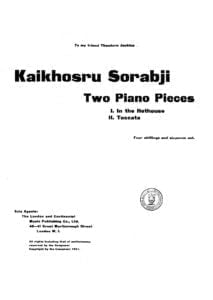
Please, subscribe to our Library.
If you are already a subscriber, please, check our NEW SCORES’ page every month for new sheet music. THANK YOU!
Browse in the Library:
Or browse in the categories menus & download the Library Catalog PDF:
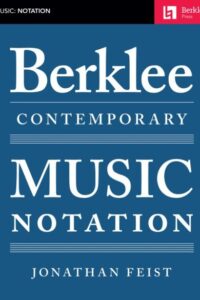
Who was Sorabji?
Kaikhosru Shapurji Sorabji: The Hermit of Modernist Maximalism
In the often-crowded pantheon of 20th-century composers, Kaikhosru Shapurji Sorabji (1892-1988) occupies a unique and enigmatic niche. A composer of staggering ambition, labyrinthine complexity, and self-imposed isolation, Sorabji crafted some of the most monumental, technically demanding, and stylistically idiosyncratic music ever conceived. His work, largely ignored during his lifetime and still challenging audiences today, represents a singular path through modernism – one defined by maximalism, intricate ornamentation, transcendental virtuosity, and a fierce, almost hermetic, independence.
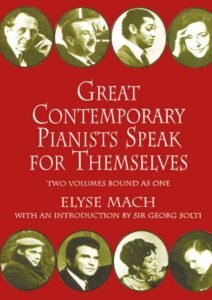
Biography: A Self-Forged Identity
- Birth & Heritage: Born Leon Dudley Sorabji on August 14, 1892, in Chingford, Essex, England. His father was a Parsi engineer from India (thus the Persian-derived name Sorabji), and his mother was English-Spanish. This mixed heritage profoundly shaped his sense of identity, though he felt alienated from both cultures.
- The Name: Around 1914, he legally changed his name to Kaikhosru Shapurji Sorabji. “Kaikhosru” and “Shapurji” were Persian names chosen for their resonance and connection to ancient Persian history and Zoroastrianism, reflecting his deliberate construction of a unique persona.
- Musical Formation: Largely self-taught. He received some piano lessons in his youth but had no formal composition training. His musical education came through voracious listening, score study (especially Bach, Liszt, Busoni, Debussy, Ravel, Scriabin, Szymanowski, Medtner), and wide reading in literature, philosophy, and the occult.
- Early Career & Criticism: Worked as a music critic (under the pseudonym “S. Godfrey”) for outlets like The New Age and The New English Weekly from the 1910s to the 1930s. His critiques were famously acerbic, insightful, and often scathing, particularly targeting English musical provincialism and composers he deemed mediocre (which was most of them).
- The Recluse: Deeply disillusioned by the musical establishment and critical reception to his early performances (which were rare and often controversial), Sorabji gradually withdrew from public musical life starting in the late 1930s. After his mother’s death in 1940, he retreated almost completely to his secluded home “The Eye” in Corfe Castle, Dorset, where he lived with his companion, Reginald Norman Best, until his death. He forbade performances of his music for decades.
- The Ban Lifted: In 1976, pressured by a growing underground interest spearheaded by pianists like Yonty Solomon and Alistair Hinton (who later became his literary executor), Sorabji reluctantly lifted the ban on performances, provided he approved the performer.
- Death: Sorabji died on October 15, 1988, in Winfrith Newburgh, Dorset, leaving behind a colossal legacy of unpublished manuscripts.
Works: Monuments of Sound

Sorabji’s output is vast and overwhelmingly dominated by solo piano music, though he also composed orchestral works, chamber music, organ symphonies, and songs. His works are renowned for their extreme length, density, and technical difficulty, pushing the boundaries of playability.
- Key Masterpieces:
- Opus Clavicembalisticum (1930): His most famous (or infamous) work. A colossal 4+ hour piano epic in 12 movements (including fugues, passacaglias, toccatas, cadenzas), often considered one of the most challenging solo piano works ever written. A summit of contrapuntal complexity and virtuosic display.
- Symphonic Variations for Piano (1935-37): Another monumental work, exploring vast variation forms over an extended duration.
- Sequentia Cyclica super “Dies iræ” ex Missa pro Defunctis (1948-49): A massive cycle of 27 variations on the “Dies Irae” chant, demonstrating his intricate contrapuntal and transformative skills.
- 100 Transcendental Studies (1940-44): True to their name, these studies explore extreme technical and expressive demands far beyond those of Liszt or Chopin.
- Symphonies for Solo Piano: Several exist, including his Symphony No. 2 (“Jāmī”), blending orchestral textures and scope onto the piano.
- Gulistān – Nocturne for Piano (1940): A prime example of his lush, perfumed, and incredibly intricate “Persian”-inspired style.
- Concerti: He wrote several for solo piano and orchestra (e.g., Concerto per suonare da me solo e senza orchestra, per divertirsi), which are symphonic in scale and require superhuman virtuosity.
- Symphonies for Organ: Vast, complex works exploring the sonic possibilities of the instrument.
Analysis of Style: A Universe of Complexity
Sorabji’s style is instantly recognizable yet difficult to categorize. It synthesizes diverse elements into a unique and overwhelming whole:
- Maximalism: This is the defining characteristic. Sorabji embraced extremes:
- Length: Works lasting several hours are common.
- Density: Highly polyphonic textures, often with multiple independent melodic lines woven together in complex counterpoint (influenced by Bach, Busoni).
- Virtuosity: Demands transcendental technique – cascades of notes, complex polyrhythms, wide leaps, immense power, and extreme delicacy. He wrote as if the pianist had four hands.
- Ornamentation: Baroque-like ornamentation (trills, mordents, turns, grace notes) is ubiquitous, often layered and integral to the texture, creating shimmering, kaleidoscopic surfaces (influenced by Scriabin, Szymanowski, Middle Eastern/Persian music).
- Dynamic Range: From barely audible whispers to thunderous, percussive climaxes.
- Harmony: A complex fusion:
- Rooted in late-Romantic chromaticism (Scriabin, Szymanowski, early Schoenberg).
- Freely employed dissonance, clusters, and intricate chord structures.
- Often retained a sense of tonal centers or polarity, even amidst dense chromaticism (unlike strict atonality).
- Incorporated modal inflections, sometimes evoking Persian or Spanish flavors.
- Rhythm: Highly complex and fluid:
- Frequent use of polyrhythms (multiple simultaneous rhythms), cross-rhythms, and nested tuplets (triplets within quintuplets, etc.).
- Tempo often fluctuates wildly, requiring immense control.
- A sense of improvisatory freedom within highly structured forms.
- Form: Often large-scale, complex, and idiosyncratic:
- Favored variations (passacaglias, chaconnes), fugues, toccatas, and intricate multi-movement structures (like the Opus Clavicembalisticum).
- Forms were often expansive and cumulative, building through layered repetition and intensification rather than traditional development.
- Architecture was paramount, even in the densest textures.
- Influences (Assimilated, Not Imitated):
- Ferruccio Busoni: The most profound influence. Busoni’s ideas of “Young Classicism,” the transcendental potential of the piano, the fusion of Bachian counterpoint with modern harmony, and the concept of “Junge Klassizität” resonated deeply. Sorabji dedicated his Opus Clavicembalisticum to Busoni’s memory.
- Franz Liszt: Virtuosity, thematic transformation, large-scale forms, and the symphonic poem concept translated to piano.
- J.S. Bach: Contrapuntal mastery, structural rigor, and the use of forms like fugue and passacaglia.
- Alexander Scriabin: Mysticism, harmonic language, dense textures, and ecstatic climaxes.
- Karol Szymanowski: Sensuous harmony, intricate ornamentation (especially in the “Persian” inspired works like Métopes and Masques), and voluptuous textures.
- Debussy & Ravel: Color, texture, exoticism, and pianistic refinement.
- Mediterranean & Persian Cultures: While not authentically recreating these styles, he evoked their essence through ornamentation, melodic turns, and titles (Gulistān, Jāmī), reflecting his fascination with his Persian heritage and the wider Orient.
- Aesthetic: Sorabji’s music aimed for:
- Transcendence: Pushing beyond perceived limits of instrument, performer, and listener.
- Luxuriance & Opulence: A rich, sensual, almost decadent sound world.
- Intellectual Rigor: Underlying the sensual surface was meticulous structural planning.
- Individualism: A complete rejection of prevailing trends (serialism, neoclassicism, minimalism) in favor of his own uncompromising vision.
Legacy: From Obscurity to Cult Status
Sorabji’s legacy is complex and evolving:
- Decades of Neglect: His self-imposed exile and performance ban meant his music was virtually unknown outside a tiny circle for nearly 40 years. Manuscripts were inaccessible, unplayable, and unpublished.
- The Pioneers (1970s-): The lifting of the ban sparked interest. Pianists like Yonty Solomon, Michael Habermann, Geoffrey Douglas Madge (who made the first complete recording of Opus Clavicembalisticum in 1977), and later Marc-André Hamelin, Jonathan Powell, Fredrik Ullén, and Ronald Stevenson began the monumental task of learning, performing, and recording his works. This required immense dedication and technical prowess.
- Publication & Scholarship: The Sorabji Archive, established by Alistair Hinton (Sorabji’s literary executor), has been crucial in cataloging, editing, and facilitating the publication of scores (primarily by Dover Publications and The Sorabji Music Archive). Scholarly work is gradually increasing.
- Recordings Renaissance: The CD era and digital distribution (YouTube, streaming) have been transformative. Dedicated labels (Altarus, BIS, Toccata Classics, Piano Classics) have released numerous recordings, making this once-inaccessible music available globally. Complete cycles of the 100 Studies and other major works are underway.
- The Cult & The Challenge: Sorabji remains a “composer’s composer” and a cult figure. His music is not mainstream concert fare due to its extreme demands and duration. However, it commands deep respect and fascination among pianists, composers, and listeners drawn to its unique sound world and uncompromising vision. He is seen as the ultimate iconoclast, forging a path utterly independent of 20th-century musical fashions.
- Influence: His direct influence on other composers is hard to pinpoint due to his obscurity, but he stands as a powerful symbol of uncompromising artistic integrity and the exploration of extreme complexity and virtuosity. Composers interested in maximalism, intricate counterpoint, or pushing pianistic limits inevitably encounter his shadow.
- Copyright Controversy: The complex copyright status of his works (involving the Sorabji Archive and publishers) has sometimes been a point of friction within the community of performers and scholars seeking access.
Sorabji: The Solitary Giant
Kaikhosru Shapurji Sorabji was a true original. He inhabited a musical universe entirely of his own making, synthesizing diverse influences into a style characterized by unparalleled complexity, sensuous opulence, and transcendental ambition. His deliberate withdrawal from the world ensured decades of obscurity, but the dedication of pioneering performers and the power of recording technology have brought his extraordinary soundscapes to light. While his music remains challenging and demanding, it offers unparalleled rewards: a journey into a world of labyrinthine beauty, overwhelming power, and intellectual fascination. Sorabji stands as a testament to the power of an utterly individual artistic vision, uncompromising in its scope and ambition, a solitary giant whose monumental creations continue to challenge and inspire. He redefined the possible for the piano and left a legacy that continues to unfold as more performers dare to scale his musical Himalayas.
“In the Hothouse” is one of Sorabji’s most evocative and frequently performed works, serving as a perfect entry point into his dense, sensuous sound world. Here’s a detailed look at this fascinating piece:
Context: Two Piano Pieces (1918)
- Composed: 1918 (early in Sorabji’s career, age 26).
- Publication: First published in 1920, making it one of the earliest Sorabji works available in print.
- The Pair: “In the Hothouse” is paired with “Toccata” – a contrasting, hyper-virtuosic, and structurally complex piece showing his Busoni/Liszt influences. “In the Hothouse” offers the sensual, atmospheric counterpoint.
- Significance: Represents Sorabji’s early mastery of texture, harmony, and evocative atmosphere. It predates his gargantuan works but already displays his unique voice.
“In the Hothouse”: A Sensory Immersion
- Title & Imagery: The title instantly conjures an environment: humid, lush, teeming with exotic, overripe plant life, heavy perfumes, and stifling, enclosed heat. Sorabji translates this sensory overload into sound.
- Form & Structure: Relatively free and rhapsodic. It unfolds as a continuous, organic stream of consciousness rather than adhering to strict classical forms. Think of it as an elaborate, decadent arabesque.
- Style & Character:
- Extreme Sensuality: This is the defining feature. The music drips with lush, complex harmonies and suffocatingly rich textures.
- Harmony: Deeply chromatic, rooted in late Scriabin and early Szymanowski. Expect dense, constantly shifting chords: augmented harmonies, whole-tone inflections, unresolved dissonances creating tension, and sudden moments of surprising consonance like shafts of light piercing foliage. It avoids traditional tonality but gravitates around implied centers.
- Texture: Thick, layered, and constantly in motion. Tremolos, trills, rapid filigree (ornamental passages), and cascading arpeggios create a shimmering, humid haze. Melodies are often embedded within this dense undergrowth rather than standing clearly apart. The writing often requires the pianist to sustain multiple layers simultaneously.
- Rhythm: Fluid and flexible, often obscured by the sheer density of notes and ornamentation. Rubato (expressive tempo fluctuations) is essential. While less overtly complex polyrhythmically than his later works, the rhythmic flow feels organic and improvisatory.
- Dynamics & Articulation: Wide dynamic range, often shifting suddenly between extremes (e.g., thunderous climaxes collapsing into fragile whispers). Articulation varies from sharp staccatos to legatissimo passages that blur together. Pedaling is crucial for sustaining the harmonic haze and creating resonance.
- Ornamentation: Quintessential early Sorabji. Trills, mordents, turns, and grace notes are not mere decoration; they are the texture, creating constant flickering movement and contributing to the claustrophobic, teeming atmosphere. This foreshadows the intricate ornamentation dominating his mature style.
- Emotional Landscape: Evokes opulence, decadence, languor, mystery, stifling heat, hidden dangers, and overwhelming sensory stimulation. There’s a sense of beauty bordering on the grotesque due to its sheer intensity.
Influences Audible in “In the Hothouse”
- Scriabin (Primary): The harmonic language (mystic chords, unresolved dissonance, ecstatic climaxes), the sensual atmosphere, and the use of trills/tremolos are deeply indebted to Scriabin’s late sonatas and poems (e.g., Vers la flamme). Sorabji pushes Scriabin’s decadence further.
- Szymanowski: The opulent textures, perfumed harmonies, and “orientalist” exoticism (though abstracted here) strongly recall Szymanowski’s “Métopes” or “Masques,” which Sorabji admired deeply.
- Debussy: The focus on atmosphere, texture, and harmonic color (whole-tone scales, parallel chords) shows Debussy’s influence, though rendered with far greater density and intensity.
- Ravel: The virtuosic filigree and lush harmonies (think “Gaspard de la Nuit,” especially “Ondine” or “Le gibet”) are a touchstone, again amplified.
- Liszt: The rhapsodic freedom and dramatic gestures hint at Liszt, though filtered through a post-Scriabinesque lens.
Performance Challenges
- Texture & Balance: Maintaining clarity amidst the dense, rapidly shifting textures is paramount. The pianist must carefully voice chords and layers to prevent muddiness while sustaining the essential harmonic haze.
- Ornamentation as Texture: Executing the constant ornamentation smoothly and evenly, integrating it into the melodic and harmonic flow rather than treating it as mere decoration.
- Dynamic Control: Navigating the extreme dynamic contrasts and sudden shifts without sounding jarring. Creating a true pianissimo shimmer within complexity is incredibly difficult.
- Rubato & Phrasing: Applying expressive tempo fluctuations naturally while maintaining the overall structural coherence and forward momentum of the rhapsodic form.
- Pedaling: Using the pedal to create resonance and blend without causing harmonic blurring or loss of rhythmic definition. Requires exceptional sensitivity.
- Stamina & Focus: While shorter than his later works (typically 12-15 minutes), the piece demands intense concentration and physical control to sustain the atmosphere and navigate the technical intricacies.
Legacy & Significance of “In the Hothouse”
- Accessibility: It remains one of Sorabji’s most “accessible” works due to its evocative title, relatively shorter duration, and concentrated expression. It’s a frequent choice for pianists introducing audiences to Sorabji.
- Blueprint: It serves as a crucial blueprint for Sorabji’s mature style, showcasing his core preoccupations: sensuality, harmonic density, intricate ornamentation as texture, and atmospheric evocation, all present in embryonic form.
- Performance History: Despite Sorabji’s later ban, “In the Hothouse” (along with the Toccata) was one of the few pieces occasionally performed during his lifetime (e.g., by Sorabji himself and pianist Reginald Paul) and became a key work for the pioneering generation post-1976 (Yonty Solomon, Michael Habermann, Marc-André Hamelin, Jonathan Powell, Fredrik Ullén).
- Gateway Piece: It functions as a vital “gateway drug” into Sorabji’s world. Its success in conveying its intense atmosphere often encourages listeners to explore his more monumental, complex works.
- Standalone Masterpiece: Regardless of its role as an introduction, it stands as a perfectly formed and powerful piece of early modernist piano writing, a miniature tone poem of extraordinary evocative power.
“In the Hothouse” is a sun-drenched, overripe, and intoxicating immersion into Sorabji’s unique aesthetic. It captures the essence of his sensual maximalism in a concentrated dose, showcasing his debt to Scriabin and Szymanowski while asserting his own distinct voice. Its evocative power, technical brilliance, and relative brevity ensure its enduring place as one of his most beloved and frequently performed works, offering a compelling glimpse into the hothouse of Sorabji’s extraordinary musical imagination.
| Artist or Composer / Score name | Cover | List of Contents |
|---|---|---|
| The Complete Keyboard Player Book 3 by Kenneth Baker |
 |
|
| The Complete Piano Player Book 1 by Kenneth Baker |
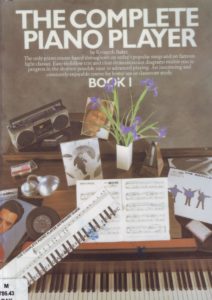 |
The Complete Piano Player Book 1 |
| The Complete Piano Player Book 2 by Kenneth Baker |
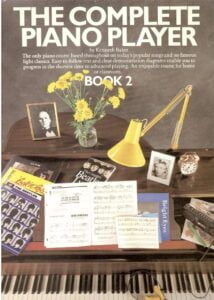 |
|
| The Complete Piano Player Book 4 by Kenneth Baker |
 |
|
| The Complete Piano Player Book 5 by Kenneth Baker |
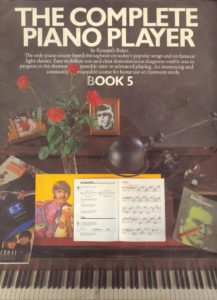 |
The Complete Piano Player Book 5 |
| The Complete Piano Player Easy Blues |
 |
The Complete Piano Player Easy Blues |
| The Complete Piano Player Style Book by Kenneth Baker |
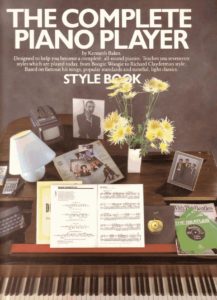 |
The Complete Piano Player Style – Book by Kenneth Baker |
| The Conformist – Main theme (Georges Delerue) | ||
| The Contradictions Of Jazz (Studies In Jazz) by Paul Rinzler (Book) |
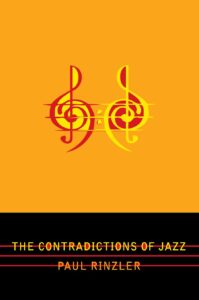 |
|
| The Corrs – Angel | ||
| The Corrs – It’s Easy To Play The Corrs |
 |
The Corrs – It’s Easy To Play The Corrs |
| The Corrs – One Night | ||
| The Corrs – Play Guitar With – MP3 audio tracks embedded in PDF Play Along with Tablature |
 |
Play Guitar With – The Corrs |
| The Corrs – Runaway | ||
| The Cottage on the Beach (Atonement OST) Dario Marianelli | ||
| The Country Music Fake Book |
 |
The Country Music Fake Book |
| The Cranberries Zombie easy piano vocal guitar | The Cranberries Zombie easy piano vocal guitar | |
| The Cure – The Best Of [Guitar Tablature Songbook] |
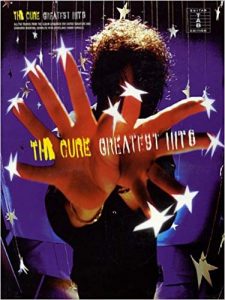 |
The Cure – The Best Of [Guitar Tablature Songbook] |
| The Cure Disintegration(Guitar & Vocal sheet music) with Tablature |
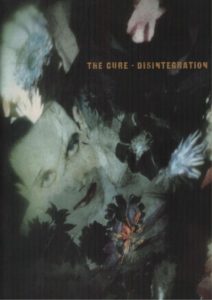 |
The Cure Disintegration Guitar |
| The Curious Case of Benjamin Button – Alexandre Desplat |
 |
The Curious Case of Benjamin Button – Alexandre Desplat |
| The Cycle Of Fifths Essential Exercises For All Jazz Traditional And Contemporary Musicians |
 |
|
| The Danish Girl – Fonnesbech (Alexandre Desplat) | ||
| The Danish Girl (Alexandre Desplat) | ||
| The Day of the Dolphin (Georges Delerue) | ||
| The Definitive Jazz Collection Alto Saxophone With Chords |
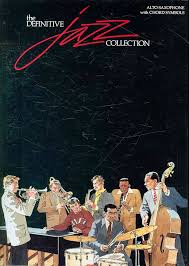 |
The Definitive Jazz Collection Alto Saxophone With Chords |
| The Diatonic Cycle Essential Exercises for All Jazz, Traditional and Contemporary Musicians by Emile De Cosmo Laura De Cosmo |
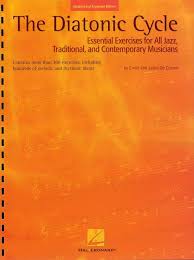 |
|
| The Disappearance Of Hatsune Miku Piano |
 |
|
| The Doors – Hello I Love You | ||
| The Doors – Light My Fire | ||
| The Doors – Riders On The Storm | ||
| The Doors – Rock Score (band songbook) |
 |
|
| The Doors Anthology (Guitar & Tablature) |
 |
The Doors Anthology (Guitar & Tablature) |
| The Doors Anthology Piano Vocal Guitar Chords |
 |
The Doors Anthology Piano Vocal Guitar Chords — 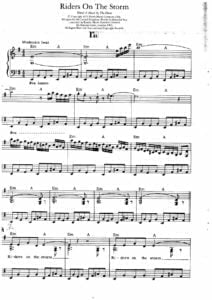 |
| The Doors Easy Piano |
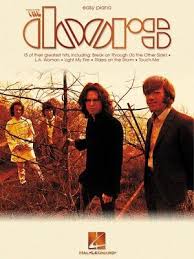 |
The Doors Easy Piano |
| The Doors Guitar Tablature Anthology |
 |
The Doors Guitar Tablature Anthology |
| The Doors The Music Of The Doors |
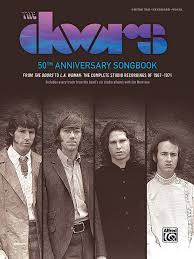 |
The Doors The Music Of The Doors |
| The dream within (Lara Fabian) | ||
| The Drummers Fake Book Easy To Use Drum Charts With Kit Legends And Lyric Cues |
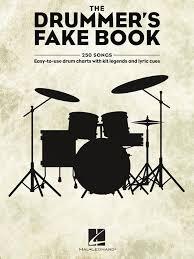 |
The Drummers Fake Book Easy To Use Drum Charts With Kit Legends And Lyric Cues |
| The Easy Sixties Fake Book 100 Songs Of The 60s Melody, Lyrics And Simplified Chords |
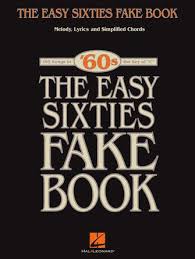 |
The Easy Sixties Fake Book 100 Songs Of The 60s Melody, Lyrics And Simplified Chords |
| The Ecstasy of Gold (Ennio Morricone) | ||
| The Elder Scrolls III Morrowind Title Music |
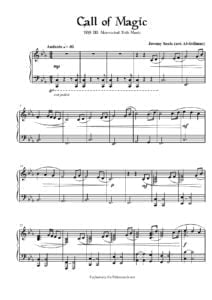 |
|
| The End Of The World – Skeeter Davis |
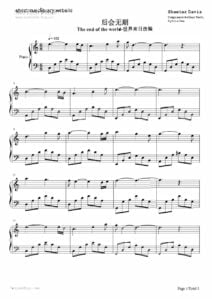 |
|
| The End Of The World – Skeeter Davis (Musescore File).mscz | ||
| The English Patient – Main Theme (Musescore File).mscz | ||
| The English Patient Piano Solo Gabriel Yared |
 |
|
| The Entertainer (Musescore File).mscz | ||
| The European Piano Method Vol. 1 Fritz Emonts |
 |
|
| The European Piano Method Vol. 2 Fritz Emonts |
 |
|
| The Evolution Of Jazz Arranging by Fred Sturm (Book) |
 |
|
| The Evolution Of The Art Of Music Cambridge Librar. (Book) |
 |
|
| The Exciters – Tell Him | ||
| The Exercise Book Guitar Grimoire Series Adam Kadmon Guitar Tablature |
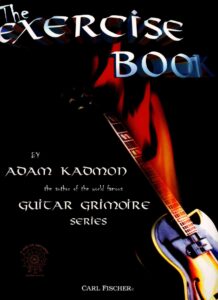 |
|
| The Exorcist Main Theme Piano Solo arr. Robert Miles and Storm Kesocascay | The Exorcist Main Theme Piano Solo arr. Robert Miles and Storm Kesocascay cover | |
| The Fantasticks – Celebration – Tom Jones & Schmidt, Harvey | The Fantasticks. Celebration – Tom Jones & Schmidt, Harvey | |
| The Fault In Our Stars Songbook Sheet Music Piano Vocal Guitar |
 |
The Fault In Our Stars Songbook Sheet Music Piano Vocal Guitar |
| The First Noel – 17th Century English Carol – Easy Piano Arr. With Lyrics (Musescore File).mscz | ||
| The First Principles Of Pianoforte Playing (By Tobias Matthay) (1905) |
 |
|
| The Fountain – Lastman – Clint Mansell | ||
| The Four Seasons – Vivaldi (Musescore File).mscz | ||
| The Four Seasons (Complete) (Musescore File).mscz | ||
| The Fray – How To Save A Life | ||
| The Fray – Scars & Stories Piano Vocal Guitar |
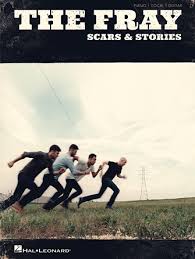 |
The Fray – Scars & Stories Piano Vocal Guitar |
| The Fray How to Save a Life |
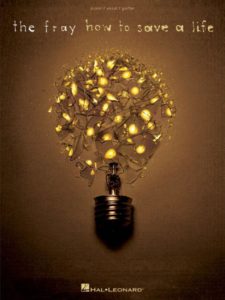 |
The Fray – How to Save a Life Piano Vocal Guitar |
| The Fray Songbook Piano Vocal Guitar |
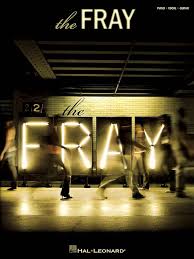 |
The Fray Songbook Piano Vocal Guitar |
| The Free Music Analysis Anthology by Mark Feezell | Book Theory | |
| The Frim Fram sauce by Joe Ricardel and Redd Evans -Jazz Play Along |
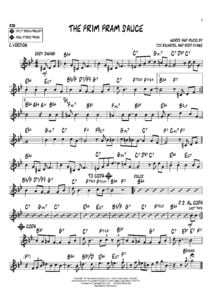 |
The Frim Fram sauce |
| The Fugees Killing Me Softly with his song (Nina Simone) | The Fugees Killing Me Softly | |
| The Full Monty (The Musical) – Piano Conductor Score Book by Terrence McNally Music and Lyrics by David Yazbek |
 |
The Full Monty (The Musical) – Piano Conductor Score |
| The Fusion Guitar Workbook (Deutsch German) with Tablature |
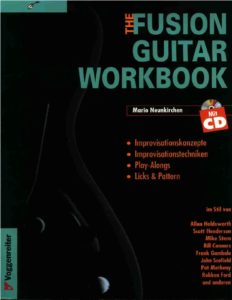 |
|
| The Genius Of Kurt Weill (1938) |
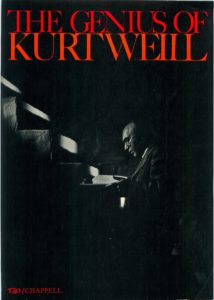 |
The Genius Of Kurt Weill (1938) |
| The Genius Of The Jazz Giants Vol 4 |
 |
The Genius Of The Jazz Giants Vol 4 |
| The Giants Of Jazz Piano |
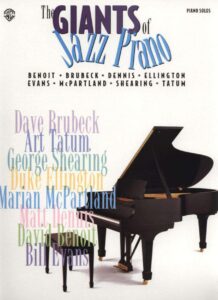 |
The Giants Of Jazz Piano |
| The Gipsy Jazz Guitar Songbook |
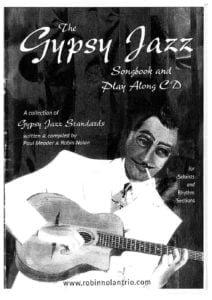 |
The Gipsy Jazz Guitar Songbook |
| The Girl From Ipanema (Antonio Carlos Jobim & Vinícius de Moraes) Jazz Piano Solo arr. sheet music |
 |
|
| The Girl From Ipanema (Guitar Tabs) (Musescore File).mscz | ||
| The Girl with the Sun in her Hair (John Barry) | ||
| The Glorious Ones – I Was Here (Piano vocal) by Lynn Ahrens and music by Stephen Flaherty | The Glorious Ones – I Was Here (Piano vocal) by Lynn Ahrens and music by Stephen Flaherty | |
| The Godfather – Love theme (Nino Rota) | ||
| The Godfather – Main Theme | ||
| The Godfather 2 – End Title (Nino Rota) | ||
| The Godfather Theme (Nino Rota) | ||
| The Godfather Waltz (Musescore File).mscz | ||
| The Godfather Waltz (Nino Rota) | ||
| The Golden Era Of Rock And Roll (Piano, vocal and Guitar Chords) |
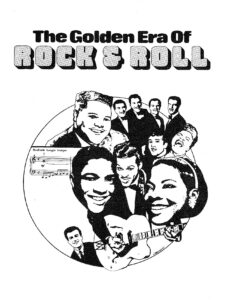 |
The Golden Era Of Rock And Roll (Piano, Vocal And Guitar Chords) |
| The Gravel Road (The Village OST) James Newton Howard | ||
| The Great American Movie Songbook (for organ & keyboard) Very easy |
 |
The Great American Movie Songbook |
| The Great American Songbook The Singers Music And Lyrics For 100 Standards From The Golden Age Of American Song |
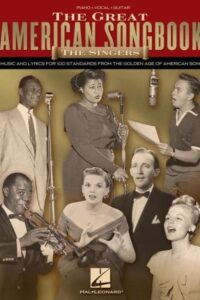 |
The Great American Songbook The Singers Music And Lyrics For 100 Standards From The Golden Age Of American Song |
| The Great Big Book Of Children’s Songs Piano Vocal Guitar Chords |
 |
The Great Big Book Of Children’s Songs Piano Vocal Guitar Chords |
| The Great Composers (By Hezekiah Butterworth) (1884) |
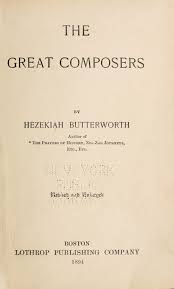 |
|
| The Greatest Love Songs Of The 21st Century |
 |
The Greatest Love Songs Of The 21st Century |
| The Greatest Love Songs Of The 60s |
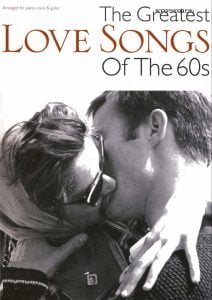 |
The Greatest Love Songs Of The 60s |
| The Greatest Love Songs Of The 70s |
 |
The Greatest Love Songs Of The 70s |
| The Greatest Love Songs Of The 80s |
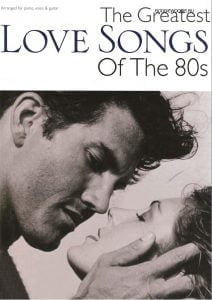 |
The Greatest Love Songs Of The 80s |
| The Greatest Love Songs Of The 90s |
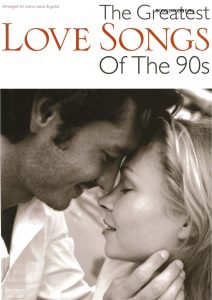 |
The Greatest Love Songs Of The 90s |
| The Greatest Showman Vocal Selections |
 |
The Greatest Showman Vocal Selections |
| The Grinch You’re A Mean One Mr. Grinch (Easy Solo Piano Arr.) By Dr. Seuss And Albert Hague | The Grinch You’re A Mean One Mr. Grinch (Easy Solo Piano Arr.) By Dr. Seuss And Albert Hague | |
| The Grinch You’re A Mean One Mr. Grinch (Jazzy Solo Piano Arr.) By Dr. Seuss And Albert Hague | The Grinch You’re A Mean One Mr. Grinch (Jazzy Solo Piano Arr.) By Dr. Seuss And Albert Hague | |
| The Grinch – You’re A Mean One Mr. Grinch (Easy Solo Piano Arr.) By Dr. Seuss And Albert Hague (Musescore File).mscz | ||
| The Grinch – You’re A Mean One Mr. Grinch (Jazzy Solo Piano Arr.) By Dr. Seuss And Albert Hague (Musescore File).mscz | ||
| The Guitar Works Of Garoto Vol 1 Guitar Scores |
 |
The Guitar Works Of Garoto Vol 1 Guitar Scores |
| The Guitarist’s Scale Book by Peter Fogl with TABs |
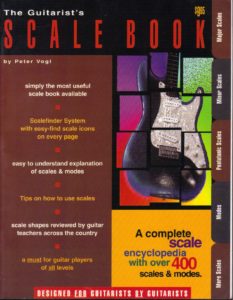 |
|
| The Hanging Tree Sheet Music (From The Hunger Games Mockingjay, Part 1) (James Newton Howard) |
 |
|
| The Harmonious Blacksmith – Gf Händel (Musescore File).mscz | ||
| The Healing – Lady In The Water | The Healing – Lady In The Water | |
| The Hill (Marketa Irglova) | ||
| The History Of Jazz – Book by Ted Gioia (Oxford Un. Press) |
 |
|
| The history of the blues – Koopmans Andy (Book) |
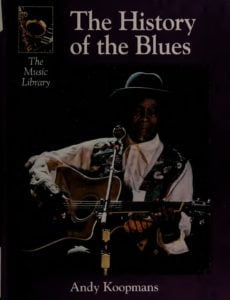 |
|
| The Horse Whisperer Sheet Music – The Vast Continent – Thomas Newman |
 |
|
| The House of the raising Sun – Traditional (Guitarr arr. sheet music) | The House of the raising Sun – Traditional (Guitarr arr. sheet music) | |
| The Hundred Best Short Classics Book 2 Cuthbert Whitemore |
 |
The Hundred Best Short Classics Book 2 Cuthbert Whitemore |
| The Hunger Games – James Newton Howard The Train |
 |
|
| The Immigrant – Love theme (The Godfather OST) Nino Rota | ||
| The Immigrant (The Godfather OST) Nino Rota | ||
| The Imperial March Star Wars Sheet Music For Piano by John Williams |
 |
The Imperial March Star Wars Sheet Music For Piano |
| The Improvisation Of Musical Dialogue A Phenomenology Of Music (Bruce Ellis Benson) Book |
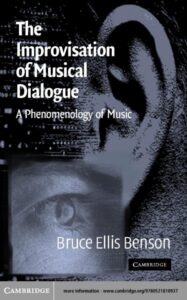 |
|
| The Intermediate Piano Sonata Collection Piano Trainer Series 9 Complete Piano Sonatas |
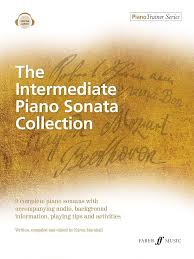 |
The Intermediate Piano Sonata Collection Piano Trainer Series 9 Complete Piano Sonatas |
| The Interpretation Of Piano Music (By Mary Venable) (1913) |
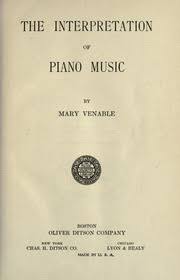 |
|
| The jazz style of John Coltrane – David N. Baker |
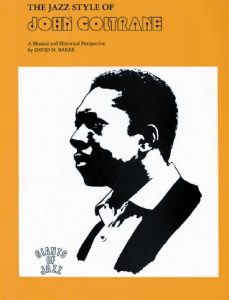 |
|
| The Jazz Tradition by Martin Williams (1993) |
 |
|
| The John Coltrane companion by Carl Woideck |
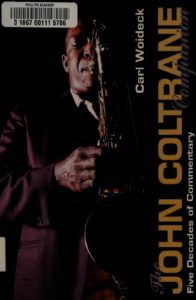 |
|
| The John Dunbar Theme – John Barry (Musescore File).mscz | ||
| The Joy Of Baroque Music |
 |
|
| The Joy Of Boogie And Blues |
 |
The Joy Of Boogie And Blues |
| The Joy Of Boogie And Blues Book 2 |
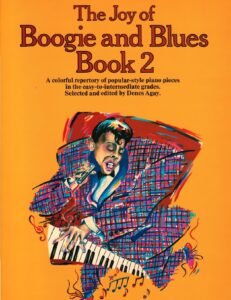 |
Boogie And Blues. Book 2 The Joy Of |
| The Joy Of Christmas – The Best loved Carols, Hymns, songs and solos |
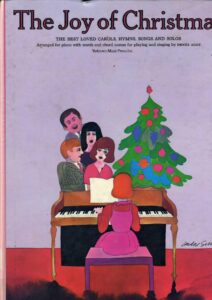 |
The Joy Of Christmas – The Best loved Carols, Hymns, songs and solos |
| The Joy Of Classics Collection Of Easy Classical Piano Pieces |
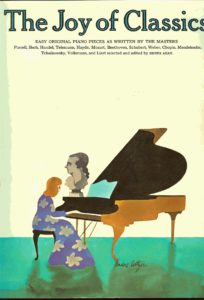 |
The Joy Of Classics Collection Of Easy Classical Piano Pieces |
| The Joy Of Disney – Easy Piano Songbook |
 |
The Joy Of Disney – Easy Piano Songbook |
| The Joy Of First Classics – Easy pieces – Easy Piano Songbook |
 |
The Joy Of First Classics – Easy pieces – Easy Piano Songbook |
| The Joy Of First Year Piano Music |
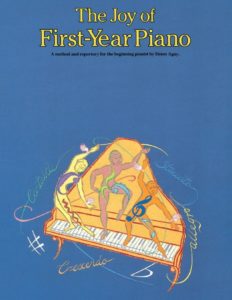 |
|
| The Joy of First-Year Piano by Denes Agay (Easy piano, piano facile) |
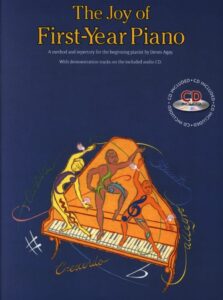 |
The Joy of First-Year Piano by Denes Agay (Easy piano, piano facile) |
| The Joy Of French Piano Music |
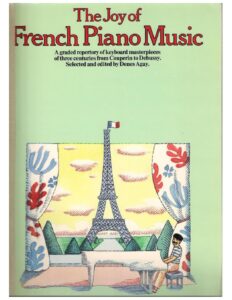 |
The Joy Of French Piano Music |
| The joy of George Gershwin |
 |
The joy of George Gershwin |
| The Joy Of Italian Melodies – Easy Piano Songbook |
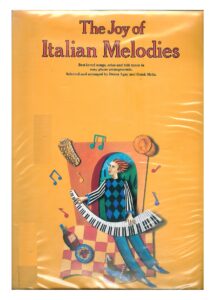 |
The Joy Of Italian Melodies – Easy Piano Songbook |
| The Joy Of Jazz (Easy to Medium Grade Piano Solos) |
 |
The joy of Jazz |
| The Joy Of Modern Blues |
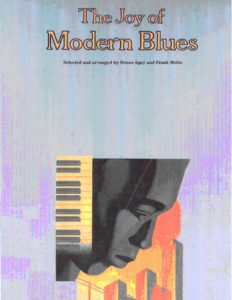 |
The Joy Of Modern Blues |
| The Joy Of Modern Piano Music (20th century classical music) |
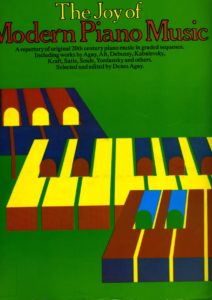 |
The Joy Of Modern Piano Music (20th century classical music) |
| The Joy Of More Classical Music |
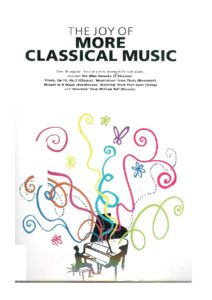 |
The Joy Of More Classical Music |
| The Joy of Music – Bernstein, Leonard 1918-1990 (Book) |
 |
|
| The Joy Of Piano Duets |
 |
The Joy Of Piano Duets |
| The Joy Of Piano Entertainment Piano Solo selected by Denes Agay |
 |
The Joy Of Piano Entertainment Piano Solo selected by Denes Agay |
| The Joy Of Pop Tunes – Easy Piano Songbook |
 |
The Joy Of Pop Tunes – Easy Piano Songbook |
| The Joy Of Recital Time Piano Solo selected by Denes Agay |
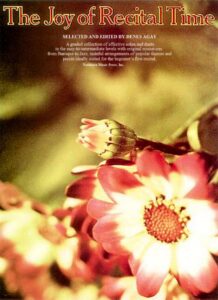 |
The Joy Of Recital Time Piano Solo selected by Denes Agay |
| The Joy Of Russian Piano Music |
 |
The Joy Of Russian Piano Music Contents |
| The Joy Of Sonatinas – Easy Piano Songbook |
 |
The Joy Of Sonatinas – Easy Piano Songbook |
| The Jungle Book Soundtrack Disney |
 |
The Jungle Book Soundtrack |
| The Killers – All These Things That I’ve Done Sheet Music | The Killers – All These Things That I’ve Done Sheet Music | |
| The Killers – Mr Brightside Sheet Music | The Killers – Mr Brightside Sheet Music | |
| The Killers – Shot At The Night Sheet Music | The Killers – Shot At The Night Sheet Music | |
| The Killers – Somebody Told Me Sheet Music | The Killers – Somebody Told Me Sheet Music | |
| The Killers – When You Were Young Sheet Music | The Killers – When You Were Young Sheet Music |
